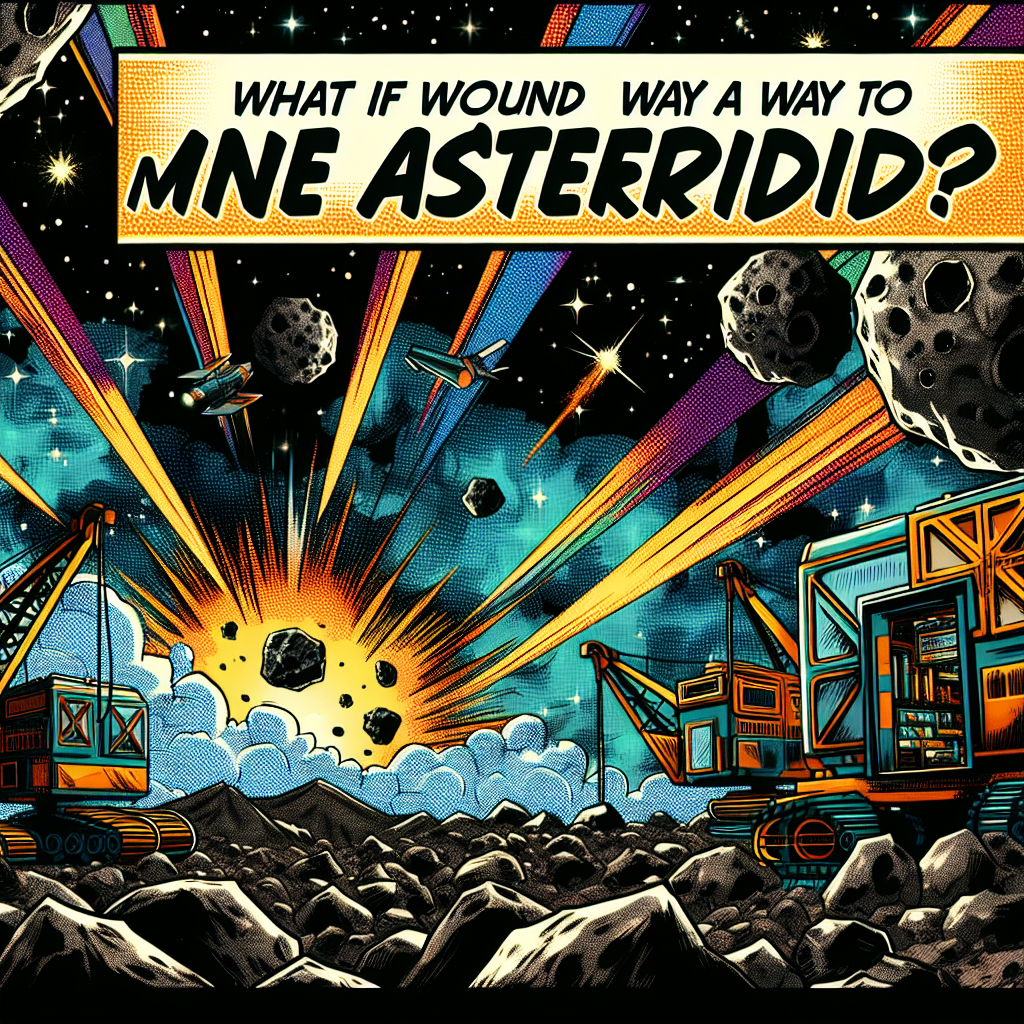Mining asteroids would be like discovering a treasure trove of resources in our own cosmic backyard. Asteroids are remnants from the early days of our solar system, comprising various minerals, metals, and even water. The most valuable resource in asteroids is the water, which can be converted into hydrogen fuel, oxygen, and even life-supporting systems.
One of the primary motivations for asteroid mining is the potential to fuel transportation systems for deep space exploration. Imagine having a gas station in space, where spacecraft can refuel and continue their journey without having to carry all the fuel from Earth. This would greatly reduce the cost and complexity of space travel.
Asteroid mining would also provide a new source of rare earth elements, which are essential for our modern gadgets and technology. These elements, like neodymium and dysprosium, are crucial for the production of electronics, renewable energy systems, and advanced ceramics. Having access to a new supply of these elements would help meet the growing global demand and reduce our reliance on terrestrial mining.
The process of mining asteroids would involve several stages. First, we'd need to identify and track near-Earth asteroids (NEAs) that are rich in resources. Next, we'd send a reconnaissance mission to survey the asteroid's composition, shape, and spin. This would help us determine the best approach for extraction and transportation.
One possible method for mining asteroids is through the use of anchors and tethers. Imagine attaching a large anchor to the asteroid's surface, and then unwinding a tether made of a strong, lightweight material. As the asteroid rotates, the tether would wrap around it, gradually slowing down the asteroid's spin and stabilizing it. This would allow mining equipment to be attached, and the extracted resources could be stored in orbiting containers.
Another approach is to use solar-powered mass drivers, which would accelerate small payloads of asteroid material into orbit around the Earth. These payloads could then be collected and processed for their resources. This method would be more energy-efficient and cost-effective, but it would require significant infrastructure development.
Asteroid mining would also raise a range of environmental and ethical concerns. For instance, mining an asteroid could potentially create space debris, contaminating Earth's orbit and posing risks to operational spacecraft. We'd need to develop ways to mitigate these risks and ensure responsible resource extraction.
The development of asteroid mining technology would also drive innovations in areas like robotics, materials science, and life support systems. The harsh environment of space would require the creation of advanced, autonomous robots capable of surviving extreme temperatures, radiation, and isolation.
One of the most significant benefits of asteroid mining is the potential to create a self-sustaining space economy. Imagine a future where space-based industries, from mining to manufacturing, can support human exploration and habitation of the solar system. This could pave the way for humanity to become a multi-planetary species, ensuring our survival even if Earth faces a catastrophic event.
The technical challenges involved in asteroid mining are significant, but not insurmountable. We'd need to develop advanced propulsion systems, shielding against cosmic radiation, and reliable communication systems for deep space. However, the potential rewards are enormous, and the long-term benefits to human civilization could be transformative.
Asteroid mining would also provide an opportunity for international cooperation and collaboration. By working together to develop the necessary technologies and infrastructure, nations could share the costs, risks, and benefits of this endeavor, fostering a new era of global cooperation in space exploration.
In conclusion, mining asteroids offers a tantalizing prospect of unlocking new resources, driving innovation, and creating a sustainable presence in space. While the challenges are significant, the potential rewards make this venture an intriguing and worthwhile pursuit for humanity's future in space.

Popular Space Questions
Find answers to the trending space questions being asked by our community on social media.
- How many galaxies are there in the universe?
- How far is Pluto from Earth?
- How many planets are in the Milky Way?
- What would happen if a rogue planet entered our solar system?
- How many planets are in our solar system?
- How big is the Earth?
- What are the planets in order?
- What if we found a way to manipulate gravity?
- What would happen if a pulsar's beam hit Earth?
- How big is the universe?